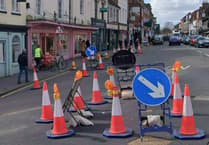Plans to divide Surrey into two new unitary councils have sparked fierce backlash from residents, who fear the move will lead to higher taxes, weaker services and the loss of local democracy.
Under the government’s devolution proposal, Surrey’s 11 borough and district councils would be scrapped and replaced with two larger authorities: a east and west split intended to streamline decision-making and save money. But many residents see it as an unwanted political experiment that will punish one side and reward the other.
Many residents expressed scepticism about whether the change will truly deliver value for money or local democracy. One person labelled the change as a “disaster waiting to happen”.
Financial fairness has emerged as a major concern, particularly following Woking Borough Council’s £500 million debt crisis and government bailout.
“We should be grateful they’re not spreading the debt across councils who manage their finances correctly,” commented Laura Morrison.
One said: “At a time when there’s no money, why do this now? It’s a distraction from the real problems.
Some residents fear that by merging councils with very different financial situations, those that have stayed solvent could end up footing the bill for those that haven’t.
“This hides the councils that have gone bankrupt and allows them to do it on an even bigger scale,” said one commenter. “Our council has no debt and we won’t be pleased if we get lumbered with others’ debts in this process.”
As Greg Taylor summed up: “Will our public services get better? No. Will local people feel they have more of a voice? No. So why are we getting forced into this change? Money — and not for the public, simple as that.”
Others are disappointed that an alternative plan to split Surrey into three smaller councils (a north, east and west model) was rejected. “So a rich side and a poor (in debt) side – guess which side the councillors live in,” said Trever Mason. “This is such a shame, it should have been three.”
While some joked about their new “East Surrey” and “West Surrey” identities, one writing “East Surrey Massive” and another replying “Westside” with emojis, most reactions were serious and frustrated.
Gary Philips posted in response to the story: “What have Guildford, Farnham and Godalming got in common with Spelthorne? Nothing. Completely different demographics and geography.”
Some people feared new developments would be concentrated in the south. “The south will become a building site,” one commenter said.
“They’ll concrete over everything to fund debts elsewhere.”
Another added: “What happens to the money we get from new developments? So houses built in Caterham can then be allocated to Redhill or wherever has the strongest voice?”
Council tax was another recurring theme. “I bet your bottom dollar our council tax will increase,” one user wrote. Another added: “Does it ever go down from one year to the next? Can’t say I’ve ever had that experience.”
There was also concern about the democratic impact. “Goodbye local government,” said one frustrated resident. “This will have a terrible impact on services like housing advice and homelessness.”
A few residents supported the idea, arguing that one streamlined system could improve efficiency and cut waste. Graham Brook commented the split will “save a lot of money through cutting away overlapping services”.
Francis Wilde added, whatever your views of two or three councils, that: “What Surrey residents need now is for all persons in a decision making or influencing position to put their personal views aside and do what they are paid for – to work together for Surrey.”
But for many, the mood was one of distrust and resignation. “So once again, the residents don’t matter,” one user commented . “Can’t see this being an improvement and it’s bound to cost more,” added another.
Speaking to the local democracy reporting service after the announcement on October 28, Surrey County Council leader Tim Oliver said the government’s decision “was never intended to involve a resident referendum,” adding that only 0.4 per cent of Surrey’s population respond to the consultation. He said ministers had been clear that the plan to create two new councils “delivers devolution in a financially sustainable way” and ensures Woking’s debt will nit be spread across the rest of Surrey.
Cllr Oliver added that fears about inequality were misplaced as government funding follows population and demand, not postcode. He highlighted the major businesses that live in the West such as McLarens, Pfizer and the gaming industry. The Conservative leader also said the new neighbourhood area committees would ensure “more localism, not less” giving residents an opportunity to influence their communities.
“It’s been an intensive year to get to this point,” he said. “This is an opportunity to start from scratch in some areas, to deliver more efficient services and make better use of technology. I think when residents look back, they’ll see this as a simpler, stronger system.”
The Ministry of Housing, Communities & Local Government have been asked for comment.
.jpeg?trim=167,0,169,0&width=752&height=501&crop=752:501)



Comments
This article has no comments yet. Be the first to leave a comment.